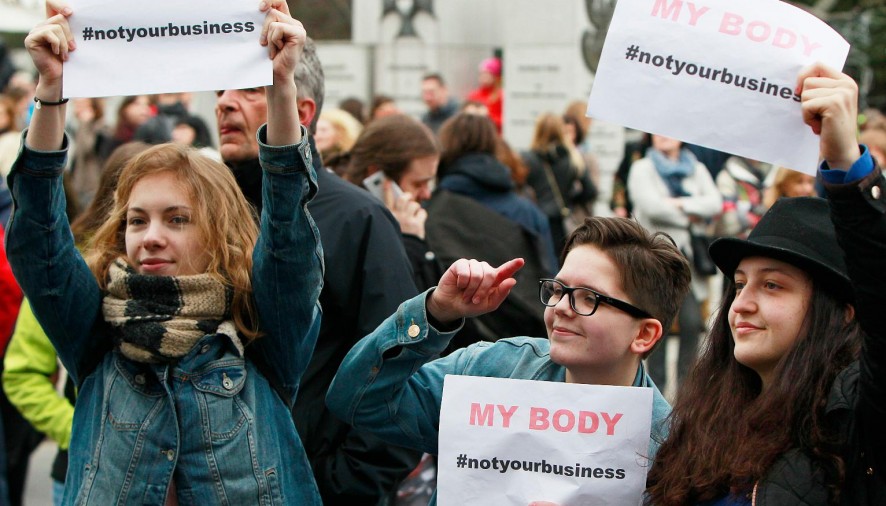October 3rd could have been a massive game changer for Polish women. An Estimated 20,000 protesters, dressed in black, made it to streets of over 60 cities and towns all over the country to stand up against the anti-abortion bill. The protesters wore black as a symbol of mourning over women’s lost freedom and to show they wouldn’t be reduced to the role of mere incubators. They were carrying banners with pro-choice slogans such as “A government is not like a pregnancy – it can be terminated” and “My body, my business”, and brought metal cloth-hangers, symbolising the illegal abortion market. The strike was inspired by Iceland’s protest from 1975 and was one of the largest mass protests in post-1989 Poland.
As of today, Poland has one of the strictest anti-abortion laws in Europe which bans abortions except in cases of rape, incest, foetal defects or if the mother’s life is in danger. Clearly, current restrictions were not rigorous enough for the pro-life organisation Ordo Iuris, so they proposed changing the abortion law to the one that is currently respected in the Vatican and Malta – one which bans all abortion. The negative side-effects are oozing from the new law draft. Implementing the Ordo Iuris’ regulations would provide an ultimate end of prenatal tests and would cause unjustified imprisonments of innocent women that have gone through miscarriage.
The inhumane ‘Stop Abortion’ project started a nationwide rage that involved not only politicians, but also doctors, the clergy (because apparently priests are know-it-alls when it comes to women’s sexual health), students, professors, journalists and social workers (not to mention the third-wave feminists and far-left organisations). Polish society seemed to be divided between the pro-life supporters, usually with very limited knowledge about the topic and the pro-choice ‘black protesters’.
The protest resulted in an unexpected plot twist in Polish politics – the government rejected the pro-life project and won’t subject it to further discussion. Poles themselves seem to be surprised with what they achieved as the current leading party, Law and Justice (PIS), is known for remaining aloof over what citizens have to say, especially when their buddy the Catholic Church is involved.
It’s hard to tell what – according to the pro-lifers – is wrong with the current compromise and why Polish Catholic circles are so oddly determined to restrain Polish women’s freedom, but one thing is certain: pro-choice activists might have won the battle, but the war is still ongoing. Catholic organisations have already announced that they will strive to restrict the abortion law in Poland against all odds. Their job will now get markedly harder, as the black protest gained international attention through BBC, Al-Jazeera and the New York Times. Poland is only going to get more interesting from here on out – and from a journalistic perspective, its fascinating to wonder what will happen next.
Maja Stefańska
(Image courtesy of The Associated Press)

